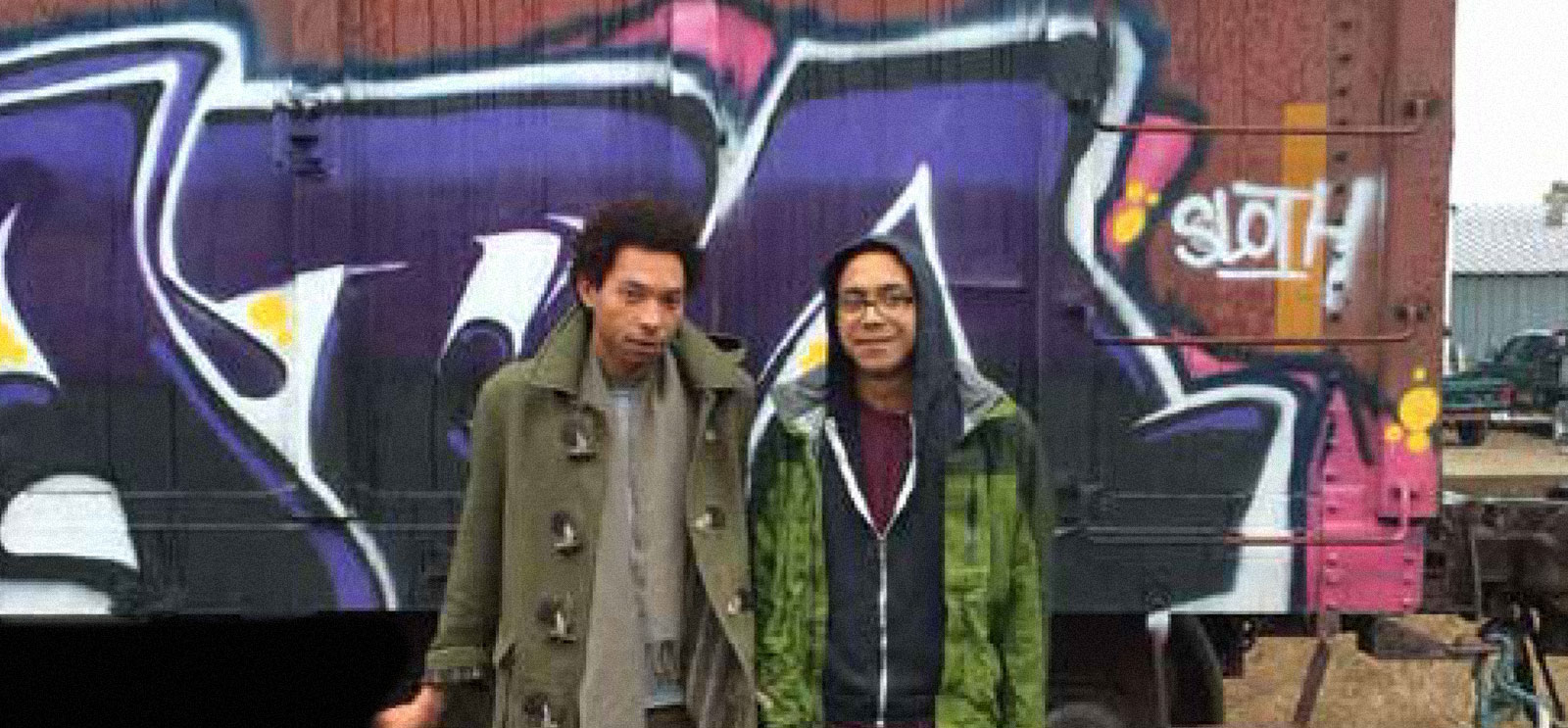On the two-day trip to Portland, Korey Garibaldi (left) traveled with friend Corey Rateau, who provided provisions from Chicago’s Publican Quality Meats. (Photo courtesy Korey Garibaldi)
Spotlight
A PhD candidate hits the rails on a new writing residency.
When PhD candidate Korey Garibaldi, AM’10 (History), wants to get work done, he hits up the Regenstein or takes advantage of his campus office. Or he gets on a train.
This past November, as part of Amtrak’s first-ever Residency for Writers, Garibaldi rode the two-day train from Chicago to Portland, Oregon, and back again, working on his dissertation en route. One of 24 Amtrak fellows chosen from more than 16,000 applicants, Garibaldi submitted in his application a chapter of his dissertation, “Knock on Any Door: The Rise and Fall of Integration in American Culture, 1919–1972.”
Aboard Amtrak’s Empire Builder, he wrote, chatted with other riders, and hung out with friends Corey Rateau, EX’14, on the way there and Ben Shepard, AB’08, on the way back. In the final year of his program, Garibaldi has a Mellon dissertation-year fellowship in addition to an appointment as the joint residential dissertation fellow from the Center for the Study of Gender and Sexuality and the Center for the Study of Race, Politics, and Culture.—Edited and adapted by Laura Adamczyk
How did the train affect your work?
One disconnect between writing history and being out in the world is, as a researcher, you often don’t have a way of mapping your academic work to public space. Especially in the observation car, it was pretty clear what I was doing—carrying around a dozen books, note taking. A lot of people I talked to on the train ended up speaking from personal experience about what it meant to be represented in history and what it was like traveling on the road. With the writing of history, there’s so much objectivity that you don’t often insert yourself. Hearing some voices that don’t usually make it into academic manuscripts, and thinking about where they fit into my work, was a real treat.
I felt strange bringing my library around. I knew that was an odd thing, and I was a little self-conscious. But bringing too many reading materials while out in public—that seemed to be a quintessentially UChicago thing to do.
Where are you with your dissertation now?
One nice thing about the award is that it’s pushed both my publishing schedule and publishing opportunities up. I’ve started to have serious conversations with an academic press about a prospective publishing contract for the dissertation. It’s also inspired a different level of professionalism more generally. As a student, sometimes you get lost when reflecting on who you’re writing for. My friends, colleagues, and faculty advisers have higher expectations now. Before, someone unfamiliar with my work might not have been compelled to engage with my ideas.
Did the trip change the way you see rail travel?
I find myself thinking about—especially if I’m going on a short trip—whether or not I can take the train. My grandmother has never taken a train, so I told her I’d take her on a trip. As long as she has someone to hang out with, she’s pretty excited for traveling.

